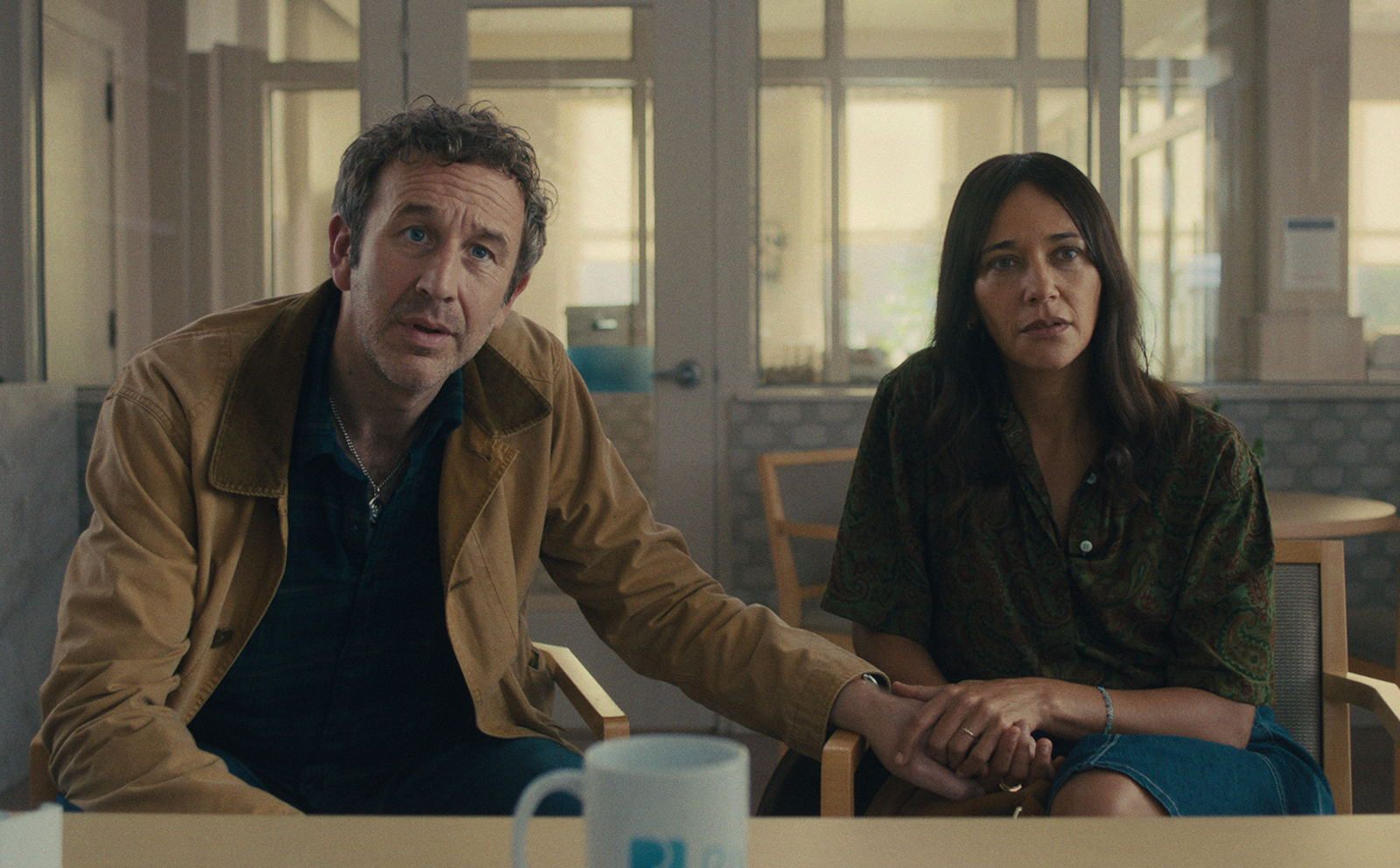Our Verdict
Not as prescient and urgent as it once was, but the Twilight Zone of tech can still manage to be occasionally chilling.
PC Gamer's got your back
Black Mirror Season 7 has arrived from the all-too-near future, bringing with it the familiar combination of tech-based horror, cautionary tales, and the occasional smidge of hope. The series doesn't feel nearly as prescient as it did when it began way back in 2011—how could it—but even when the episodes of this technological Twilight Zone don't quite deliver on their premises, they're still well worth watching (maybe while scrolling social media on your own black mirror).
This time around there are a few game-centric episodes: one deals with AI in a sim game that might not be quite as artificial as it seems, another returns us to space-based MMO Infinity from Season 4, and one episode deals with something we all constantly use and deeply dread: streaming subscription services.
Plus, you can even see someone playing Balatro in one scene in Season 7, which makes sense: Black Mirror creator Charlie Brooker called the deckbuilder "possibly the most addictive thing ever created."
Cancel anytime
The most relatable tech nightmare begins in the episode "Common People," where grade-school teacher Amanda (Rashida Jones) and welder Mike (Chris O'Dowd) are a humble but happy suburban couple until their lives are upended by a serious medical event. Amanda needs brain surgery, but offering the only real and affordable chance for success is a startup called Rivermind that will stream some of her brain functions from their cloud-based servers. For a monthly fee.
We subscribe to everything these days: smartphone plans, streaming services, apps, music, news websites, videogames. It can be legitimately difficult just to buy something: it took me ages to find a fitness tracker that didn't require a monthly sub, and when I had a plumber come to install a new bathroom fixture recently, he told me now offers a monthly service subscription.
We're all well-versed in the pitfalls of these subscriptions, like sudden price hikes, different tiers of service, and that infuriating moment when we realize, "Wait, I'm paying for this subscription, so why the hell do I have to watch advertisements?" Now apply all that stress to your brain instead of your phone, TV, or game library. It's an unsettling thought (especially if that thought is being streamed into your head).
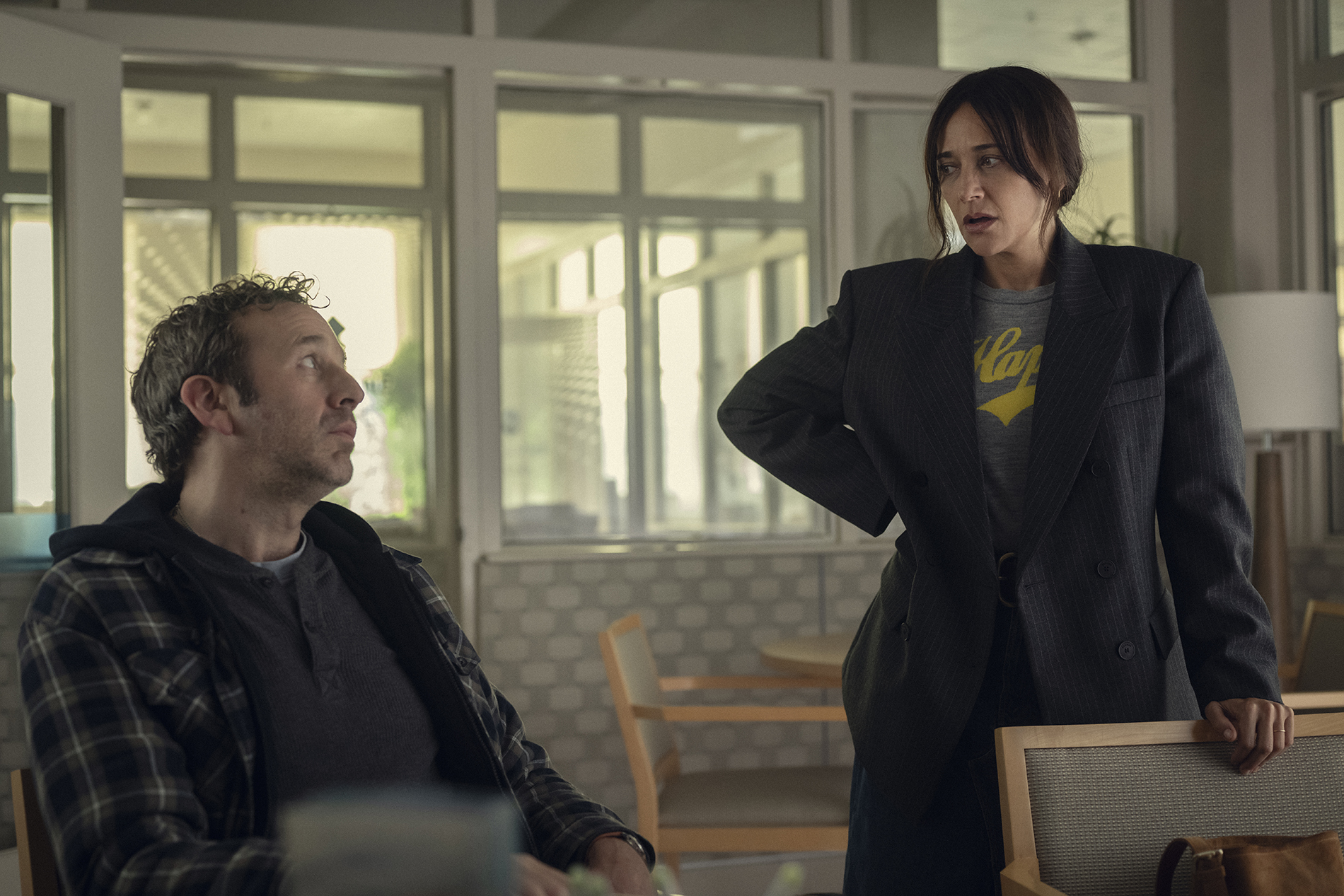
There are obviously benefits to streaming services both in this episode and in life—Amanda would be in a coma if not for Rivermind (at least here in the US, where you can't get life-saving medical procedures or even routine medications without bankrupting yourself). I complain about monthly subs but I still subscribe to a bunch of them so I can listen to any song ever made or any movie ever released without having to go hunt down a physical copy in a store.
But the episode—the best of the six this season—is a pointed reminder of how quickly we've gone from owning the things we pay for to renting them a month at a time, and how just to live our lives we're relying more and more on distant servers controlled by megacorporations more than happy to squeeze every dollar they can out of us.
Simulation nation
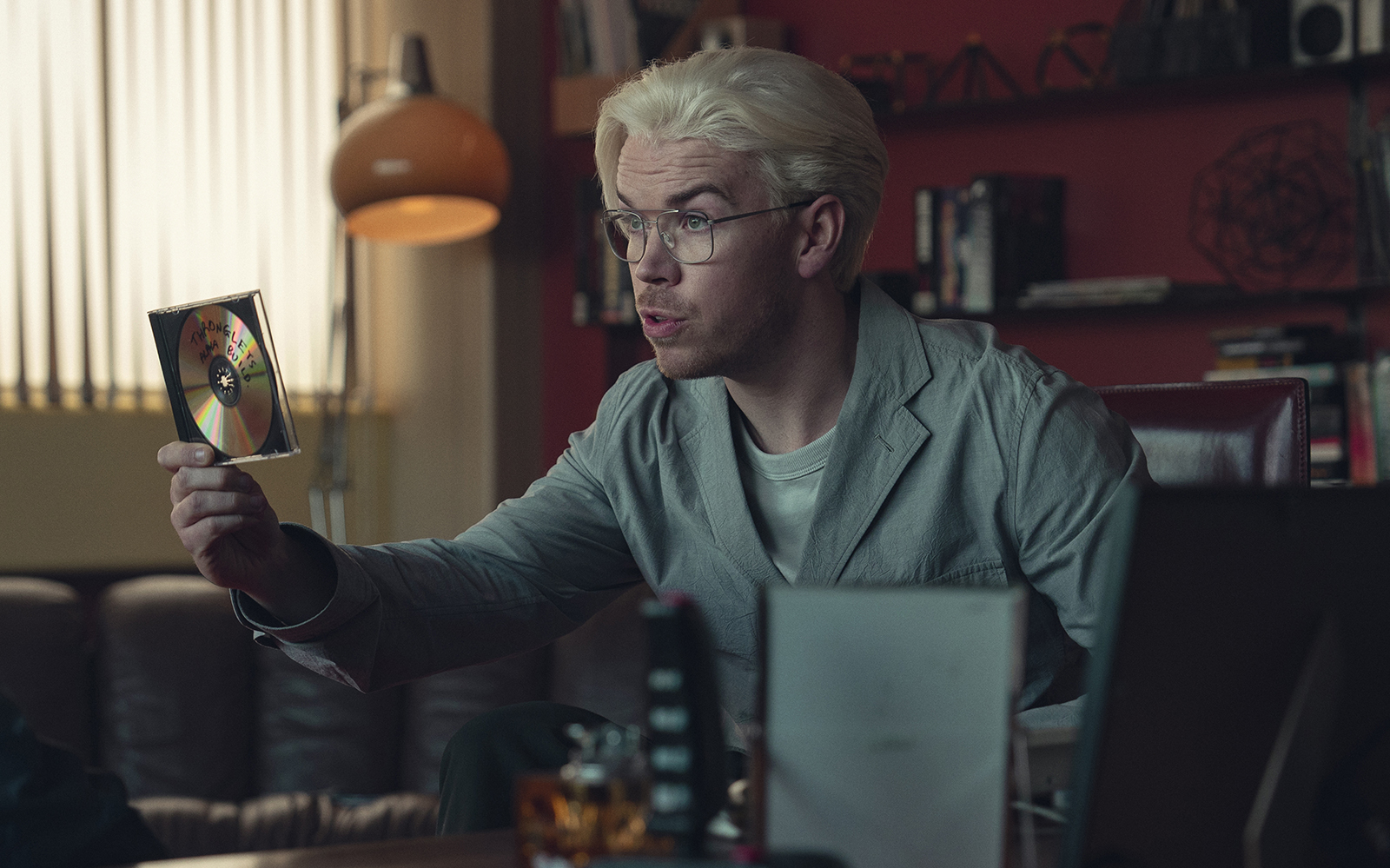
Another episode, "Plaything," takes us back to the 1990s as a young games journalist working for PC Zone magazine (as show creator Charlie Brooker did) is invited to preview a new game from Colin Ritman (Will Poulter), the developer we met in Black Mirror: Bandersnatch. (Note: apart from Poulter's appearance, this episode isn't a really Bandersnatch follow-up as we'd hoped, and it's not an interactive pick-a-path episode like Bandersnatch was.)
"They're not some obscene puppets, like Sonic the Hedgehog."
Colin Ritman (Will Poulter)
Ritman's new game isn't actually a game, he claims. It's called Thronglets and though it looks like it's a creature simulation, Ritman claims the critters on the screen are actually alive. "They're not some obscene puppets, like Sonic the Hedgehog," he says. "These are living individuals" created with code.
The cute pixelated creatures walk around in a simulated nature preserve multiplying and sometimes singing. The journalist realizes the Thronglets are trying to communicate with him, and after scavenging some gear like an Atari Jaguar, a Quickcam, and a Sound Blaster sound card (it's fun to see all this throwback hardware again), he upgrades his rig so he can talk to them directly. His interest in these creatures quickly turns to obsession, but if your Sims were really alive, wouldn't you be even more consumed with them than you already are?
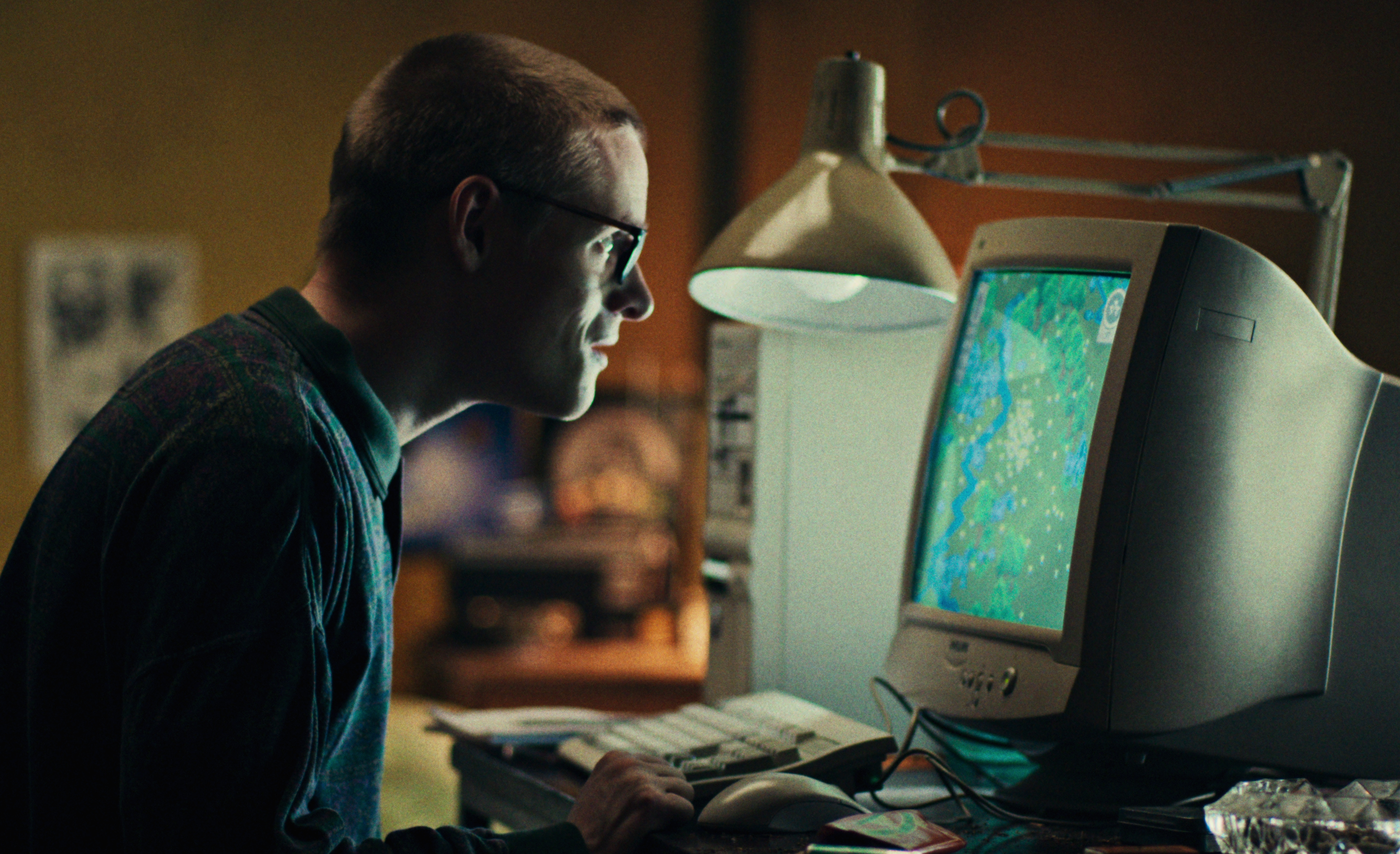
Thronglets might be based on sims like 1996's Creatures, which featured little animals called Norns players could pet, feed, play with, and teach to take care of themselves. The Norns would communicate with little noises, similar to the Thronglet's singing, and Creatures used machine learning and neural networks to allow the creatures to learn behaviors, making it a precursor to today's AI research. (It's even on Steam.)
Unfortunately this episode can't really live up to its setup, and it's pretty much all setup. The idea of the sims in our games being actually alive is an interesting one, especially when they can grow and learn, but it's not particularly well explored here. It's great fun seeing lots of old hardware and references to games like 1994's Magic Carpet (in the episode the reviewer says he gave it a 93%, though apparently the real PC Zone gave it a 96%) but even Peter Capaldi playing an older version of the games journo can't make this episode memorable.
Engage
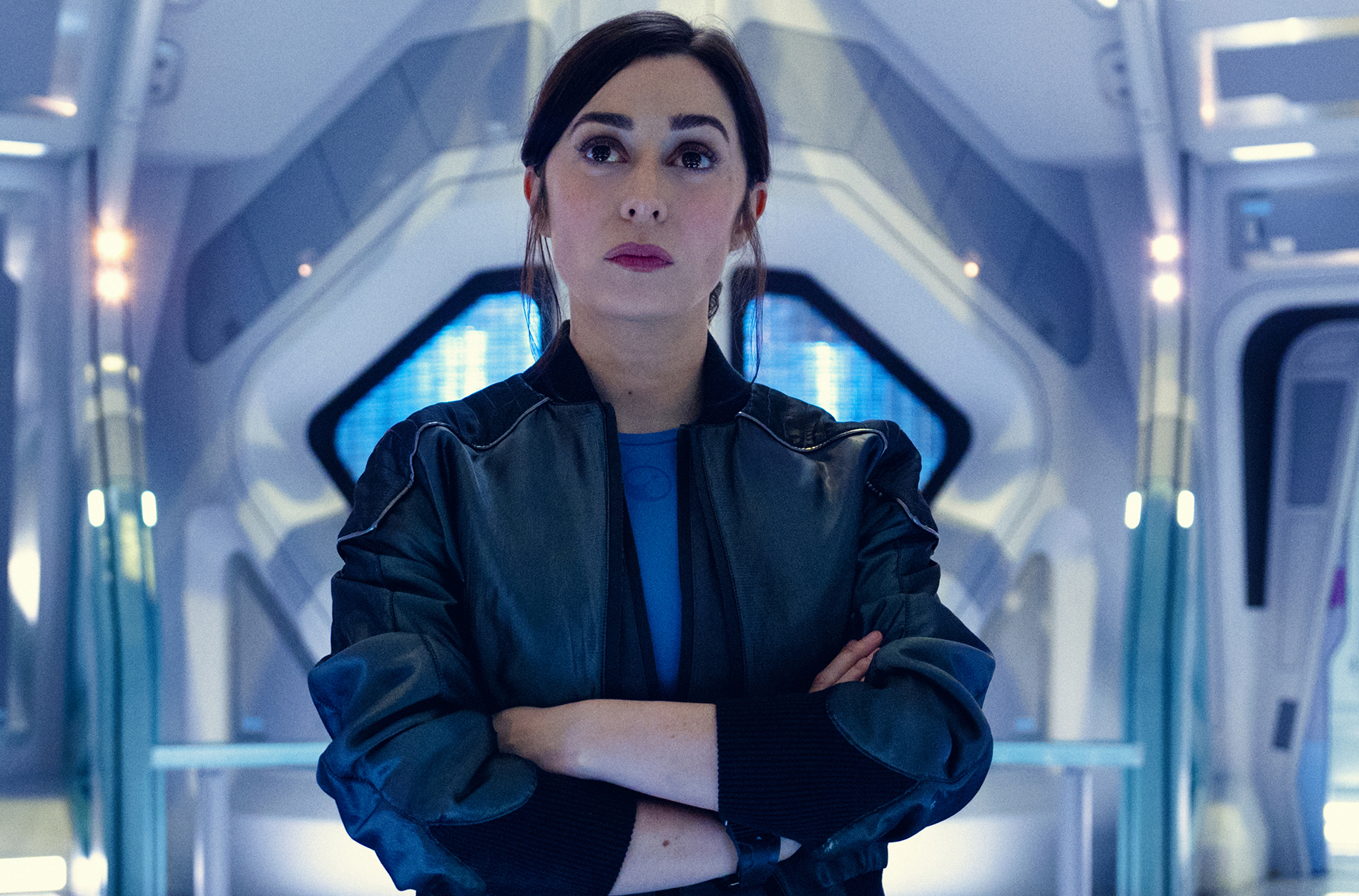
The biggest draw of the season is probably the follow-up to the Black Mirror Season 4 episode "USS Callister," in which a masochistic game developer (played by Jesse Plemons) made digital clones of his coworkers using their DNA and inserted them into his space-based MMO so he could abuse them.
A lot more could have been done with the premise of real people trying to survive inside an MMO.
In Season 7 sequel "USS Callister: Into Infinity," the starship crew, captained by Nanette Cole (Cristin Milioti), find themselves in dire straits as the game they're living in has been heavily monetized and requires credits just to use their hyperdrive. Since they're not actual players but are living in the game's universe, they're targeted for deletion by the game's sleazy and greedy CEO James Walton, played again by Jimmi Simpson.
Most of the episode is carried by the great performances of Milioti and Simpson, who play dual roles as the real world Cole and Walton and their digital clones inside the game. But the movie-length episode (it's 90 minutes) just doesn't have enough to sustain it other than a few laughs. A lot more could have been done with the premise of real people trying to survive inside an MMO, but most of the episode takes place outside the game in the less-interesting real world.
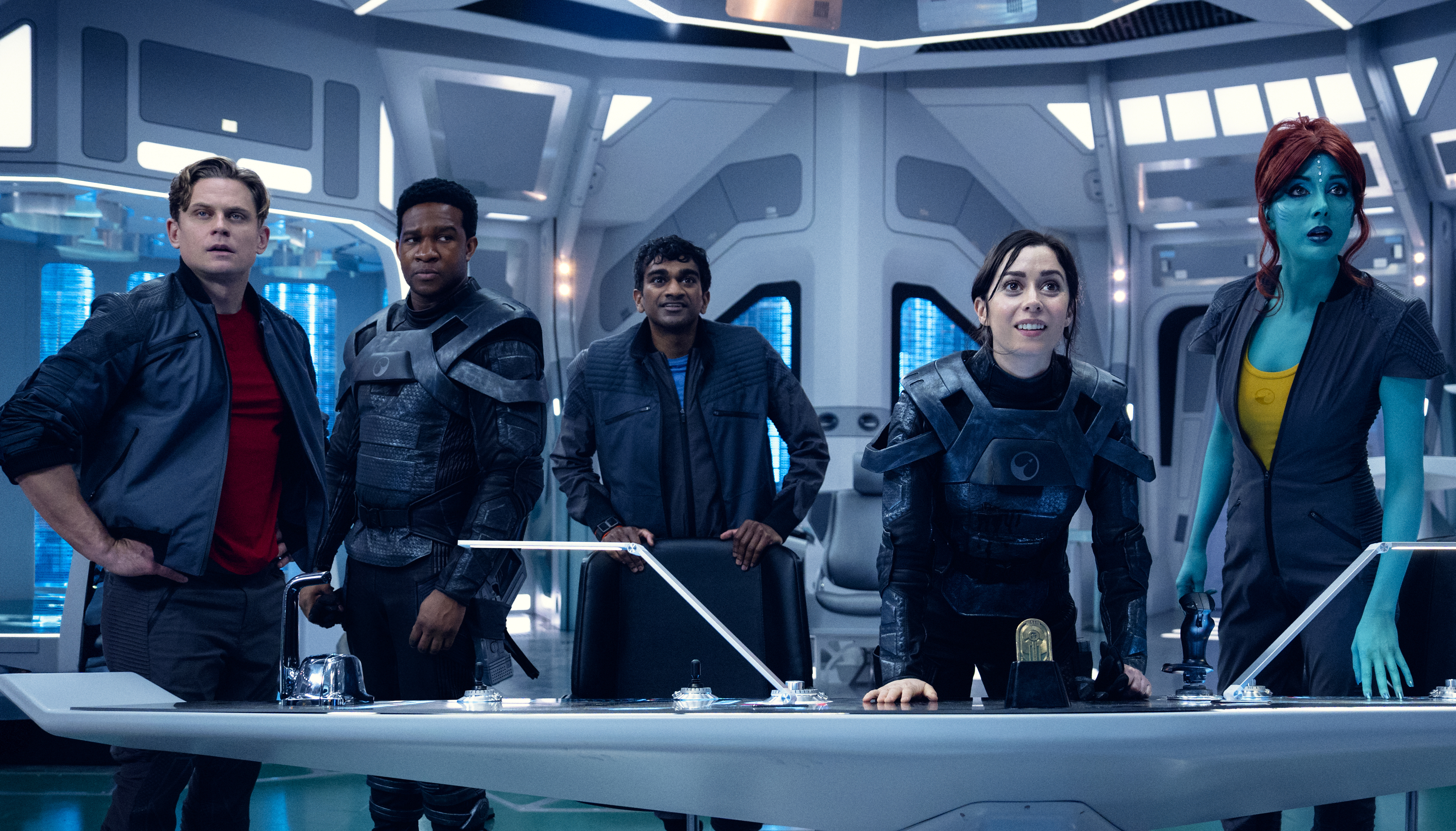
The other episodes of Season 7 I hate to describe as "fine," but they're fine: Paul Giammati plays a man exploring his painful past through photographs while assisted by an AI guide, Issa Rae is a modern day actor inserted (again, with AI) into an old film so it can be updated for re-release, and Siena Kelly is a chef who starts experiencing the Mandela Effect to a troubling degree when a former classmate resurfaces in her life.
Like Season 6, most of these episodes don't feel like they're really foreshadowing the future when it comes to technology. The series relies heavily on its "Experiencer Disk," a recurring gadget that you stick to your temple that instantly transports you into a virtual world where pretty much anything can happen, and that always winds up feeling more like fantasy than science fiction.
But just because the show has lost some of the impact and weight of the earlier seasons, they're still worth streaming to one of your black mirrors: at least until Netflix can beam them right into our heads.
Not as prescient and urgent as it once was, but the Twilight Zone of tech can still manage to be occasionally chilling.

Chris started playing PC games in the 1980s, started writing about them in the early 2000s, and (finally) started getting paid to write about them in the late 2000s. Following a few years as a regular freelancer, PC Gamer hired him in 2014, probably so he'd stop emailing them asking for more work. Chris has a love-hate relationship with survival games and an unhealthy fascination with the inner lives of NPCs. He's also a fan of offbeat simulation games, mods, and ignoring storylines in RPGs so he can make up his own.
You must confirm your public display name before commenting
Please logout and then login again, you will then be prompted to enter your display name.
